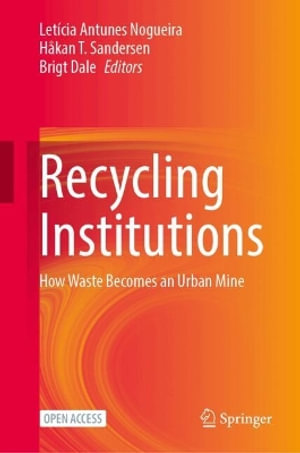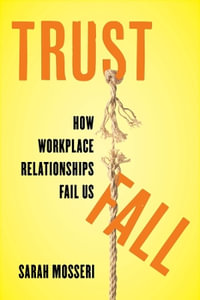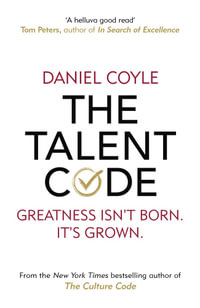
Recycling Institutions
How Waste Becomes an Urban Mine
By: Brigt Dale (Editor), Leticia Antunes Nogueira (Editor), Hakan T. Sandersen (Editor)
Hardcover | 22 September 2025
At a Glance
Hardcover
$80.70
Ships in 5 to 7 business days
ISBN: 9783031817533
ISBN-10: 3031817532
Published: 22nd September 2025
Format: Hardcover
Language: English
Number of Pages: 278
Publisher: Springer Nature B.V.
Country of Publication: GB
Dimensions (cm): 23.5 x 15.5 x 1.75
Weight (kg): 0.57
Shipping
| Standard Shipping | Express Shipping | |
|---|---|---|
| Metro postcodes: | $9.99 | $14.95 |
| Regional postcodes: | $9.99 | $14.95 |
| Rural postcodes: | $9.99 | $14.95 |
Orders over $79.00 qualify for free shipping.
How to return your order
At Booktopia, we offer hassle-free returns in accordance with our returns policy. If you wish to return an item, please get in touch with Booktopia Customer Care.
Additional postage charges may be applicable.
Defective items
If there is a problem with any of the items received for your order then the Booktopia Customer Care team is ready to assist you.
For more info please visit our Help Centre.
You Can Find This Book In
This product is categorised by
- Non-FictionSociology & AnthropologySociologySociology & Work & Labour
- Non-FictionEngineering & TechnologyEnvironmental ScienceSanitary & Municipal EngineeringWaste Treatment & Disposal
- Non-FictionEconomicsEconomic Theory & Philosophy
- Non-FictionBusiness & ManagementOrganisational Theory & Behaviour
- Non-FictionEarth Sciences, Geography, Environment, PlanningThe EnvironmentWaste Management
- Non-FictionPolitics & GovernmentCentral GovernmentCentral Government Policies
- Non-FictionBusiness & ManagementManagement & Management Techniques
























